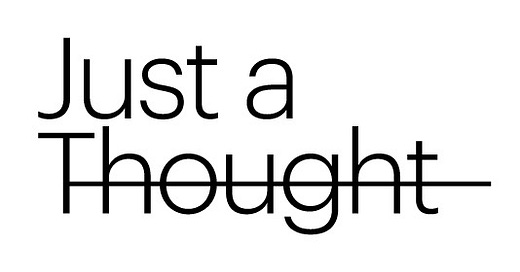Last week, I stumbled upon an interview of Massimo Vitali in PRESENT Magazine. I’d never heard of Massimo or PRESENT before, but the article’s hero image perfectly depicts a “legendary photographer” as they claim he is. Rather than saving this piece to maybe read later, I closed the window, opting to ignore it altogether.
The amount of truly great content in the world is overwhelming. Classics, not yet consumed and whatever groundbreaking piece du jour is currently occupying our feeds. An endless pull between deciding to finally start Mad Men or join the conversation by watching Shrinking. To choose to pick up whatever well-designed book is occupying bookstore windows, or finally read Moby Dick. For the average content appreciator™️, the struggle to keep up with a seemingly endless list of recommendations can be daunting.
Every month, I add about as many books to my “Want to Read” list as I finished last year, stow away enough 5,000 word essays in Matter to fill my screen time for the next decade, and add a dozen more hours of movies to my Letterboxd watchlist. I had long considered these lists to be a queue — perhaps closer to a to-do list — wherein each item must be checked off and forever removed from my tasks, to free me from the burden of responsibility.
This framing was only contributing to the content overwhelm™️ I felt and most importantly, completely missing the point. The reality is, articles stored away to “read later” will mostly not be read. My “watchlist” will house a lifetime of classics, forever unwatched. The majority of books on my “to-read” shelf will remain there, untouched. And that is okay, because the queue is not a to-do list.
The queue best exists to narrow the top of the funnel — to act as a trusted filter of the endless (and growing!) flow of content, no matter who (or what) recommends it. This is its real purpose. To be a refuge of trusted and vetted content. Ultimately, the dream state is that we all become highly-competent collectors, making bets today on what we will want to come back to later. The goal is not to work through a perfectly curated queue in its entirety, but be damn good at knowing what future you will be glad present you stowed away. Filter ruthlessly, save generously, and always default to serendipity. This is our obligation, fellow internet surfers.
In his book "How to Talk About Books You Haven't Read," Pierre Bayard encourages readers to liberate themselves from the guilt of not reading every book. In this sense, he reframes "non-reading" not as an intellectual failing, but as a different, valid way of engaging with the literary world. This is a similar case to what I’m arguing here. Well, at least, I think it is. I haven’t actually read this book. It’s in my queue.
BEST...DESK...EVER
Ever wondered what it would be like if John Wilson had a YouTube channel where he made really beautiful furniture with his signature voice-over comical commentary? As I typed that out, a voice popped into my head with some version of “well with AI, you will actually be able to do that.” Shut up, voice. Discovering this video (serendipitously!) and then stashing it in my YouTube watch-later queue, to be watched three months later on the elliptical feels like the perfect anecdote to drive home the point of this post.
—Andrew
Kam Hwy
The number of times that Black Sabbath’s “War Pigs” has been used in action sports video parts over the years has to be up there, but somehow it keeps working. The latest example is this edit from Tucker Wooding documenting John John Florence’s winter season on the North Shore. It’s pretty rare that you see a surf edit in all black and white, which adds to the moodiness of the clip. And John John is John John, which means the surfing is high consequence and stylish.
—Justin
Notes From Prince Harry’s Ghostwriter, by J.R. Moehringer
Writers writing about writing can be a tricky subject. In the best cases, the pieces convey both a sense of relatability (“Stars, they’re just like us!”) and aspiration (“Stars, they’re nothing like us!”) with some tidbits that the reader can apply to their own creative process. In the worst cases, they feel like droll grammar school lessons on diagramming sentences with the painful twist that, in this instance, you’re there voluntarily. Moehringer’s story for the New Yorker about his experience writing Spare for Prince Harry (along with anecdotes about his previous work with Andre Agassi and Phil Knight) falls squarely in the former category.
—Justin
The Rest is History Podcast
This pod comes suggested by JAT appreciator, BSrebs, who allegedly was put onto it by BGunz, but never gave him credit.
I think the only cosign this podcast needs, aside from the above BSrebs x BGunz reccos is that they had the OG history podfather, Dan Carlin, on for two episodes. Navigate to their feed and find an episode (or miniseries) that tickles your fancy. I’ve really been enjoy the classic British humor layered on well-researched and better-explained history lessons.
—Andrew









long live the average content appreciator™️